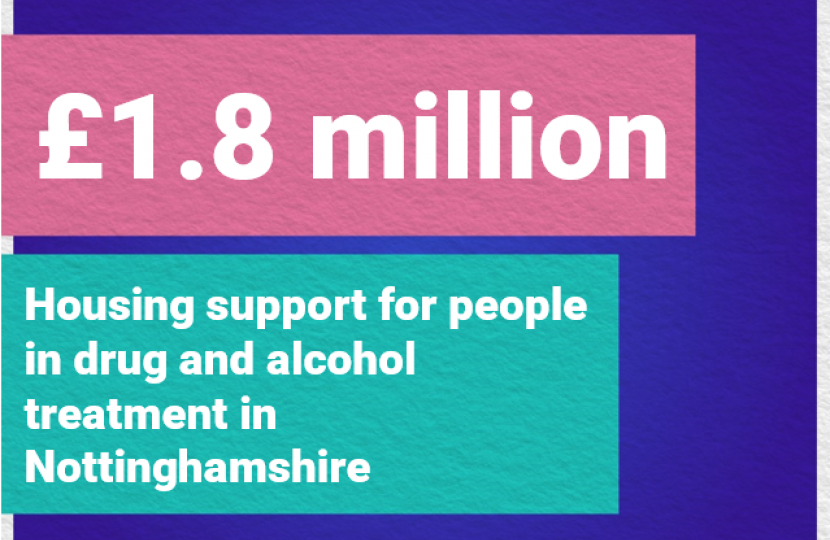
People in alcohol and drug recovery will benefit from access to housing support, helping to break the cycle of addiction and improve health outcomes.
£1.8 million will be made available for housing support for people in drug and alcohol treatment in Nottinghamshire through a range of programmes, including:
Floating support workers who will work across a range of accommodation settings to support people in their homes and improve engagement in treatment services. They will be supported by a psychologist specialising in trauma who will provide support to people using services and to Nottinghamshire’s support workers.
Treatment outcomes for people in drug and alcohol recovery are often improved by addressing their housing needs at the same time, providing additional support and stability. Up to £53 million has been allocated to 28 local authorities across areas of England with the greatest need. The funding allows for local authorities to create new housing support schemes tailored to meet local need.
Examples of how the funding will be spent include specialist housing caseworkers supporting people in drug and alcohol treatment to access and maintain safe and suitable housing. Support will also look to help people create sustainable and long-term recovery by maintaining independent living.
Health and Social Care Secretary Steve Barclay said:
“We’re supporting those recovering from drug and alcohol addiction by addressing the link between improved treatment outcomes and a stable home.
“This £53 million funding, targeted to local authorities with the greatest need, will support the government’s ambition to reduce overall drug use to a historic 30-year low.”
Health Minister Neil O’Brien said:
“Alcohol and drug dependence can have a devastating impact on the lives of people, their families and wider society. It is essential to break this cycle of addiction.
“The £53 million housing support funding will play a key role in testing how housing can help break this cycle, improve recovery and help people to live happier and healthier lives.”
